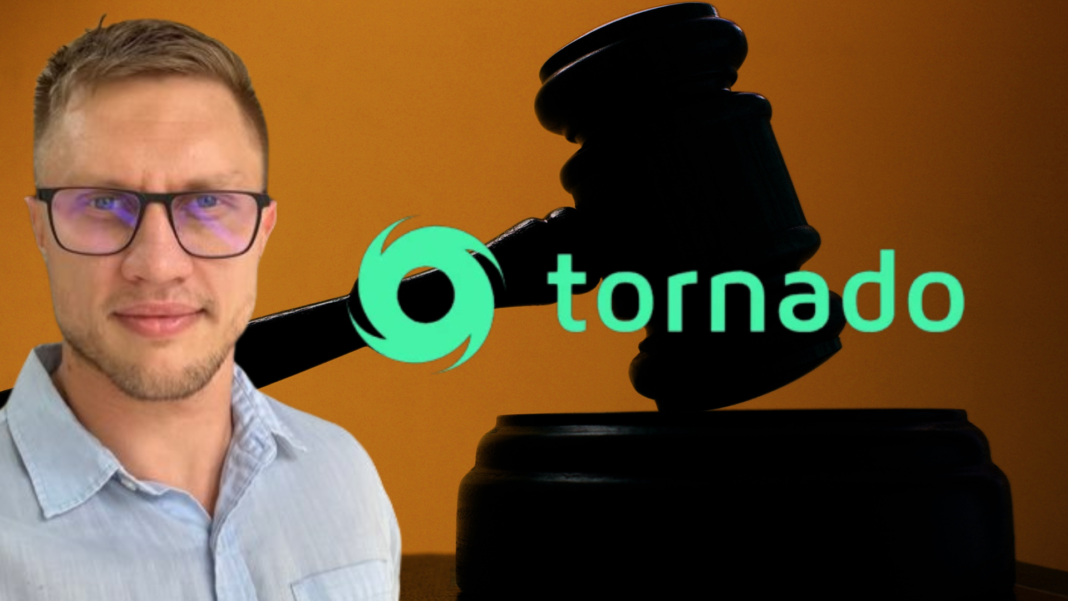Roman Storm, co-founder of the cryptocurrency mixing platform Tornado Cash, has filed a motion in a U.S. federal court seeking the dismissal of all charges against him.
Storm’s legal team argued that a recent ruling by the Fifth Circuit Appeals Court invalidates the criminal case, as it found sanctions against Tornado Cash’s smart contracts to be unlawful.
Appeals Court Ruling Reshapes the Case
The Fifth Circuit ruling, delivered in November, declared that the Treasury Department’s Office of Foreign Assets Control (OFAC) exceeded its authority by sanctioning Tornado Cash’s smart contracts.
The court emphasized that these immutable and autonomous smart contracts do not meet the legal definition of “property” under U.S. law and, therefore, cannot be sanctioned.
The appeals court ruling was specifically referenced in Storm’s December 18th request, which was filed in Manhattan’s district court and claimed that it made the charges against him “fatally and legally flawed.”
He argued that this ruling most significantly impacts the charge of conspiring to violate the International Emergency Economic Powers Act (IEEPA), a cornerstone of U.S. sanctions enforcement.
“The smart contracts are immutable and not the ‘property’ of any individual or entity. They cannot be blocked under the law,” Storm’s motion stated.
Implications for Other Charges
Storm has been charged with three serious crimes related to his role at Tornado Cash, conspiracy to facilitate money laundering, conspiracy to operate an unlicensed money-transmitting business, and violating U.S. sanctions. If convicted on all counts, he faces a potential sentence of up to 45 years in prison.
Also Read: Crypto Scam: Phishing Attack That Drained $55.4M DAI, Hacker Moves 900 ETH To Tornado Cash
However, the appeals court decision could undermine these allegations. The ruling noted that Tornado Cash’s smart contracts are decentralized and beyond the control of their creators, which directly challenges the notion that Storm or his co-founders could have intentionally facilitated money laundering or violated sanctions.
In its decision, the Fifth Circuit emphasized, “Mr. Storm could no more choose to stop them than he could choose to stop the sun from rising.”
Trial Delayed Amid Legal Developments
Storm’s criminal trial, which was scheduled to begin in December this year, has been postponed to April 2025. The delay will give both sides additional time to address disagreements over expert witness disclosures, as ordered by Judge Katherine Polk Failla of the Southern District of New York.
Storm’s legal team has also argued that the district court previously declined to rule on the immutability of Tornado Cash’s smart contracts in September, leaving the matter for trial. However, the appeals court ruling has now “decided as a matter of law” that the contracts are immutable, removing the need for further jury deliberation on this point.
The legal battle surrounding Tornado Cash has drawn significant attention from the cryptocurrency and legal communities. Tornado Cash, a platform designed to enhance transaction privacy by obfuscating the origin and destination of cryptocurrency transfers, has been criticized for its use by sanctioned entities, including North Korean hackers.
Storm’s motion to dismiss highlights the broader tension between innovation in decentralized finance and government efforts to regulate and control financial systems. The outcome of this case could set crucial precedents for the treatment of decentralized technologies and their creators under U.S. law.
Also Read: DEXX Hackers Launder 6,432 ETH Worth Over $10 Million Through Tornado Cash Protocol


